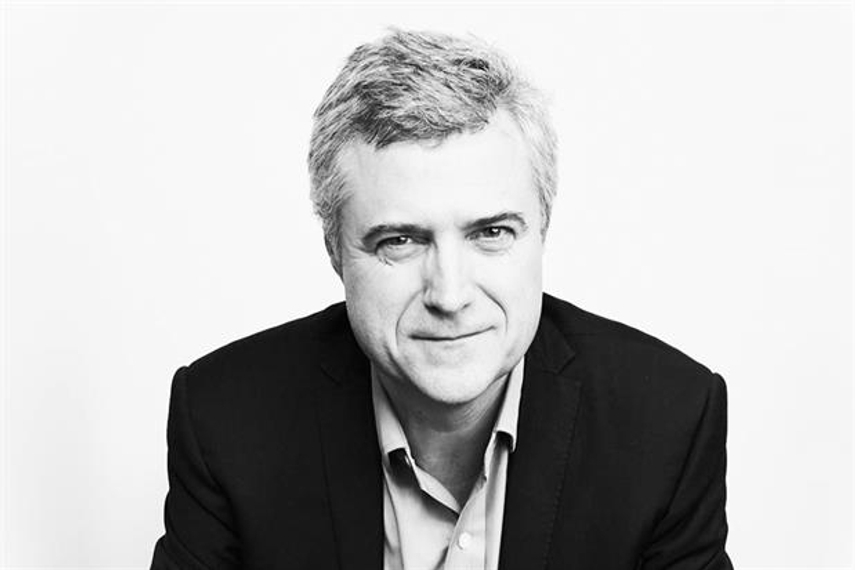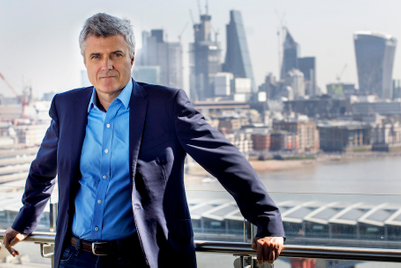
WPP has claimed it has a competitive advantage over agency rivals because of its policies on environmental, social and governmental (ESG) issues and said “responsible marketing” is becoming more important for attracting both clients and talent.
“Demand is off the scale” for ESG-related work, according to WPP, the world’s biggest agency group with 100,000 staff, which hosted an investor presentation dedicated solely to the topic last week.
There is “significant” potential revenue growth in advising clients in areas such as climate change, racial equity, privacy and responsible marketing, Mark Read, the WPP chief executive, told Campaign, although he said it is hard to quantify the exact upside in financial terms.
“Nearly all of our top 30 clients are putting ESG or purpose much more at the heart of what we’re doing—whether that’s automotive manufacturers moving to electric vehicles to food companies looking at their portfolios,” he said. “It’s not all marketing but it’s an increasingly important part of what companies need to communicate to their consumers.”

Turning down clients
Read insisted WPP, which has clients across every major sector, has turned down work from clients in the past if they “don’t share our values”.
He admitted that working in “sectors like energy are more challenging” but there is a role to play in supporting these companies on “the energy transition that they’re working on”—away from fossil fuels to more sustainable sources.
“We have to look at responsible marketing. We have to think as a company about the impact of our marketing and the impact that our products [that we work on] have on society. That is increasingly important to us.”
However, he suggested that doesn’t necessarily mean that WPP might have to turn down more client work because brands recognise they must change.
“Increasingly, clients are taking responsibility for their products and how they are used and I think that, together with the steps that we’re taking towards responsible marketing, hopefully [it will] mean there should be few occasions where we need to turn down clients, though that’s certainly something that we would do if we didn’t believe they were asking us to do the right thing,” Read said.
ESG has risen up the agenda because “WPP and our industry are at the heart of the many political and social and environmental changes that are happening in society—a number of which have been exacerbated by Covid”, he said.
“If you look at climate change, racial equity, privacy, responsible marketing, we’re really at the nexus of many of these issues—as are our clients. That makes this topic both important to us and important that we get it right.”

'No trade-off between business performance and ESG'
Read gave three reasons why clients care about ESG: “They want to work with companies that share the same values as them”; “they turn to us for advice on how to design successful products”—he cited Unilever and Wunderman Thompson’s recent Cannes Lions Innovation Grand Prix for a deodorant designed with a diverse disability community; and clients want to “communicate what they’re doing”.
ESG also matters to WPP’s own talent. “People want to work for companies with whom they share the same values and they take this seriously” and “we need to attract the best people to do the best work for our clients”, he said.
“The same is true of our clients who both care about how we behave, that we have teams that are diverse—increasingly an area of questions that they ask us—but also how we behave and that we’re thoughtful about the impact of our work with them on, for instance, the environment—hence our commitment to net zero [carbon emissions by 2025].”
He emphasised: “There’s no trade-off between business performance and our ESG strategy—they are inextricably linked. The more we live up to our purpose, the better it will be for our business, for all the reasons that I have outlined.”
Avoiding 'green-washing' or 'purpose-washing'
Critics have accused the ad industry of “green-washing” and “purpose-washing”—making only superficial or cosmetic changes to improve a company’s reputation—and Read acknowledged that action is key
“Purpose starts with doing the right thing and that’s what’s most important. Are energy companies making the energy transition? Are food companies and supermarkets building healthier food portfolios?” he said.
“But at the same time, I think companies should be able to talk about and market and communicate the steps that they are taking, so the consumers know and understand what they are doing.
“We don’t in any way condone greenwashing and, in this era of social media, it is very difficult to do—witness the issues at Brewdog over the last few days and weeks.
“I do think that companies that take [positive] action should be able to talk about those actions—just as they do about any attribute of a product.”
Read added that communicating well about ESG is a challenge that many business leaders are struggling with.
“When I talk to CEOs, often their biggest frustration is how they communicate all of the steps of their ESG policies to their stakeholders—and increasingly we’re helping them do that,” he said.
'Ahead' of agency peers?
WPP cited Sustainalytics data, compiled by investment data firm Morningstar, to show it has the lowest risk of five global agency peers on ESG metrics.
The company’s mission statement talks about using the power of creativity for better futures for its “people, planet, clients and communities”.
WPP’s showcase of its ESG work included case studies from senior management and it presented employee data from the UK and US that showed its representation of some ethnic groups lags the wider population, particularly at senior levels, and executive bonuses will reflect diversity targets.
Analysts broadly welcomed the presentation.
Investment bank Numis Securities said: “Agencies look generally well placed here from an ESG perspective given a relatively low environmental footprint, immersion/sensitivity within popular culture and they are people/talent dominated.
“While there could be ethical debate about the client portfolio, the message is that WPP (and all agencies) must work with clients and change with them for the better.”
Analysts at Barclays said it was “positive” about WPP. The stock “should make any investors’ ESG list”— “the only area of debate is whether they should extend their commitment to refusing to advertise questionable products (a gas-guzzling SUV, for instance)”.
“Management’s answer was that they would accompany their clients in their own transformation (for instance, WPP’s largest client, Ford, is on its own path to electrification) and that they would part way with clients not sharing their values, but that they were not in the business of restricting consumer choice.
“If a consumer had been educated on the benefits of a hybrid/electrical vehicle and was still choosing a gas-guzzling SUV, then they should be allowed to do so. This is clearly an interesting philosophical debate (individual freedom vs. the supposed ‘greater good’), and management has logically decided to go for best of both worlds (high ESG score but no short-term impact on profit).”
Many other companies and organisations are discussing how to improve their work on ESG. Sainsbury’s held an investor day on ESG in June and the IPA has carried out research on ESG for its business growth conference this week.
(This article first appeared on CampaignLive.co.uk)


.jpg&h=268&w=401&q=100&v=20250320&c=1)
.jpg&h=268&w=401&q=100&v=20250320&c=1)
.jpeg&h=268&w=401&q=100&v=20250320&c=1)


.jpg&h=268&w=401&q=100&v=20250320&c=1)

.png&h=268&w=401&q=100&v=20250320&c=1)
